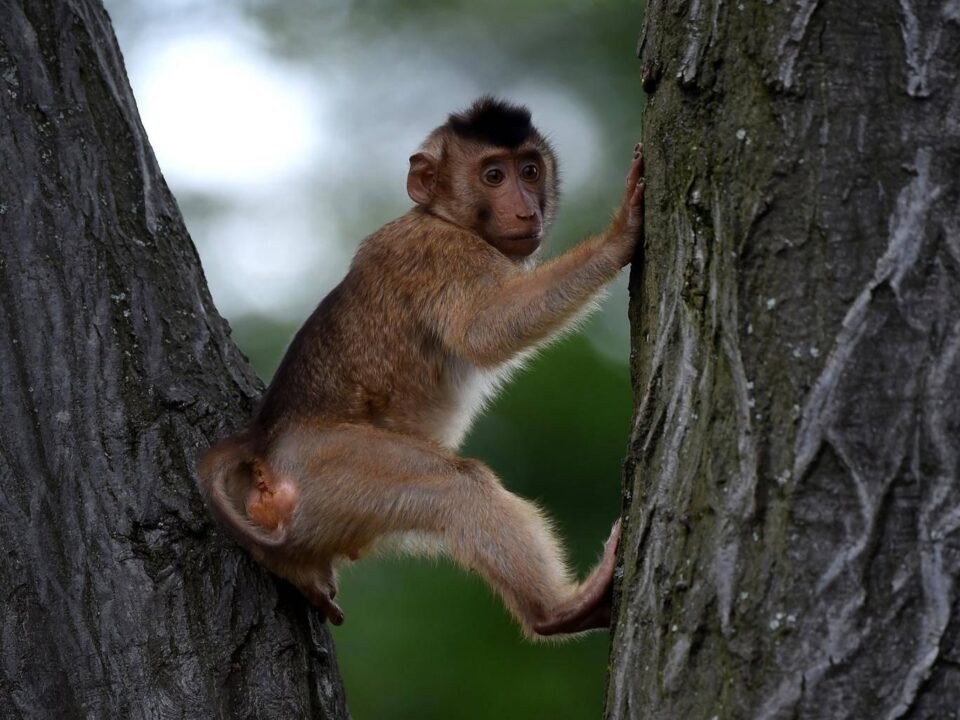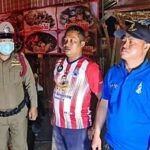British supermarkets have stopped selling coconut products from Thailand after it emerged the harvested fruit came from slave monkey labour.
The Waitrose chain has vowed not to sell products made with animal labour after an investigation showed that popular brands were exploiting primates.
Animal rights organisation Peta Asia’s investigation found Thai farms training monkeys to pick coconuts from trees, sometimes being forced to carry items larger than their own bodyweight.
Waitrose said it will thoroughly check its coconut products to ensure they are not derived from animal labour.
John Gregson, communications manager for health and agriculture at Waitrose and Partners said: ‘Waitrose and Partners supports PETA’s goal to end the use of monkey labour in the coconut industry.
‘As part of our animal welfare policy we have committed to never knowingly sell any products sourced from monkey labour.’
Other companies including Boots, the Co-op and Ocado have also pledged not to sell products that use monkey labour, while Morrisons has removed the Thai products from its shelves.
Animal rights organisations have spoken out against the farms which use pigtailed macaques to harvest the fruit.
Peta have called on customers to avoid buying coconut products from Thailand to prevent supporting the use of enslaved monkeys at farms.
Elisa Allen, Peta director, told the The Daily Telegraph: ‘These curious, highly intelligent animals are denied psychological stimulation, companionship, freedom and everything else that would make their lives worth living.’
The animal rights organisation’s investigation found farms chaining monkeys to tires outside and handlers pulling out the monkeys’ teeth to avoid being bitten.
Farms prize the monkeys for their work, with an adult male pigtailed macaque able to harvest 1,600 coconuts a day, compared to just 80 by a human.
The news comes after Thailand sterilised hundreds of monkeys in a city famous for its macaque population, as the coronavirus pandemic left them hungry, aggressive and wrestling food from terrified residents.
Central Thailand’s Lopburi province and its 2,000 monkeys have long been a draw for tourists from around the world, who typically feed and pose with them for selfies.
But since Thailand closed its borders on April 4 to control coronavirus infection, the monkeys did not adapt dwindling food supplies.
Lopburi’s authorities have begun catching, sedating and sterilising the primates, aiming to sterilise 500 to slow the growth of the population.




